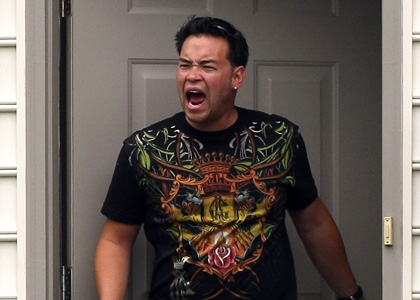Earlier this year, Spike Lee called Tyler Perry’s work, “coonery and buffoonery”. Lee, a veteran in the industry, believes that we must want more for ourselves in terms of the black entertainment we support and supporting Perry is supporting an “Amos n’ Andy”, shucking and jiving, stereotypical portrayal of ourselves that is unacceptable. It was not long ago that I agreed with Lee…
Once upon a time I wasn’t a fan of Tyler Perry’s work either. The image of a 6’5″ man dressed as a shotgun-toting, loudmouth grandma was a huge turn-off. I joined the chorale of black people who considered his chitterling circuit plays the height of coonery and buffoonery. But then, in 2005, when his plays hit movies theatres nationwide, I took a chance and saw my first Tyler Perry film.
In a room full of journalists and enthusiasts I watched, “Diary of a Mad Black Woman” and much to my surprise, I loved it. The presence of Madea was a welcome distraction in the midst of a film that would have otherwise been too intense to sit through without the comic relief. And despite my assumptions about Madea’s roles in his work, she really played second fiddle to the plotlines that focused on the issues that are very real in the black community. The issues of light versus dark, rich versus poor, our relationships, our religion, our dysfunctional families, our abuse, and our misconceptions have been well covered by Perry, who, in one way or another, has gone through these issues. The richness of his life experiences is the heart of his work . That he is a man who experienced abuse, lived in a dysfunctional family, experienced discrimination, felt the sting of poverty, and through it all, still clung firmly to his faith resonates throughout his films.
A part of me wants to believe that Lee is somewhat jealous of Perry’s seemingly quick success. But I know, someone as accomplished as Lee wouldn’t be jealous. Yet, and still, I have to understand why he felt the need to insult one man’s work, without remembering that a person’s opinion of art is all relative. One person’s “coonery and buffoonery” is another person’s–usually the common person’s–treasure. In the eyes of a critic, Perry will never be right, but in the eyes of his fans, his work will always speak greater volumes than any critic or peer could ever write, say or think.
I’ve certainly gone on long enough about this, but if I say nothing else, I’d like to say to Spike, in hopes that one day he’ll read this screed, that he ought to be his brother’s keeper and not his brother’s killer. After all, Spike, you weren’t always as highly regarded as you are now. It took the guidance of people who cared about your success to get you to where you are now. And while you weren’t fortunate enough to have many other black peers on your level then, you have more now, so take time to embrace those who have different ideas of portraying our lives on film. Respect the differences that both separate us and bring us together. And for God’s sake, don’t provide more fodder for the world outside of the black community. It’s easy for us to be ripped to shreads by people on the outside, it shouldn’t be so easy for us to tear each other apart from the inside. Do the right thing, Spike.


